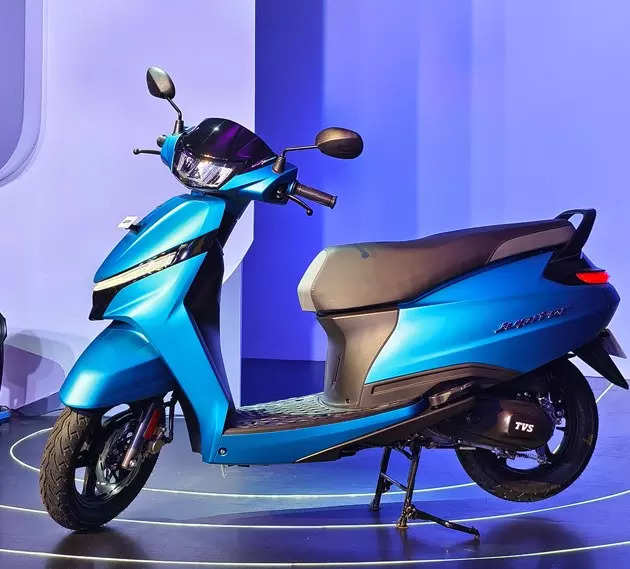
New Delhi: TVS Motor Company will leverage its Indonesia operations to set up a strong base for the all-new Jupiter 110 that was launched on Thursday, August 22.
“You will see this new platform for the scooter getting established there. We will then leverage our plant in Jakarta and start supplying markets in ASEAN with the new product,” KN Radhakrishnan, Director and CEO, told ETAuto during an online media roundtable.
The Jupiter 110 has been developed on a “completely new next generation platform” in line with the company’s Reimagine 2030 vision. Radhakrishnan said it would redefine the scooter industry in India thanks to its styling, design, convenience etc. TVS Motor has invested INR 150 crore on this new platform which will now be set up in Indonesia post-Diwali, sometime in 2025.
Having a base there will offer all the benefits of the ASEAN Free Trade Area which essentially means that there will be no tariffs to worry about for shipments in this region. At present, TVS Motor has just begun retailing its two-wheelers in Vietnam while has been around slightly longer in the Philippines. Thailand is still unchartered territory with other potential markets like Taiwan, Malaysia etc in line for the new Jupiter.
Tough challenges
The company set up its Indonesia plant nearly two decades ago but had to face competition from established Japanese players like Honda, Yamaha and Suzuki. The going was tough but it was important to hang in there and fight it out. As Radhakrishnan said, operations have turned profitable in the last 3-4 years with higher numbers now being sold in Indonesia.
“Quarter after quarter, things are getting better in terms of building a larger customer base. Customers are happy with Jupiter, which is retailed as the TVS Calisto (since Yamaha has a Jupiter too) and we will expand it further,” he added.
Whilst on the subject of Indonesia, TVS Motor had tied up with Singapore-based Ion Mobility to work on Project Dynamo, an adaptation of the TVS X electric motoscooter launched last year. The idea was to understand the priorities of Indonesian riders and work towards better rider comfort along with handling and acceleration.
Ion Mobility essentially focuses on development of electric motorcycles and supporting technologies for Indonesia and ASEAN.
Mobility solutions
TVS Motor, in turn, is keen on supporting future mobility solutions with electric mobility as the enabler. Both companies will pool in their competencies to make electric vehicles for Indonesia and other countries in Southeast Asia.
Radhakrishnan said the Jupiter brand was also a big draw in Sri Lanka and Bangladesh even while these markets have been going through their own sets of challenges in recent times. Turkiye and Africa are also important export markets for Jupiter whose overseas shipments are in the region of 8,000 units per month.
Back home in India, the scooter industry has grown 8% with TVS at 12% and the Jupiter at a much higher 24%. The CEO was hopeful that the new 110cc offering would take the growth story to the next level. “This product will delight customers across India,” he said while driving home the message that rural markets have been registering brisk growth too. “Rural is picking up and is 52% for scooters to urban’s 48%. We have a young population which wants to be mobile thanks to good roads,” added Radhakrishnan.
Scooters on a roll
At present, scooters account for 32% of overall two-wheeler sales and he said this component could even increase to 40%. The company was focused on the customer and “wanted to offer the best” in comfort and performance.
“We have therefore gone in for a completely new platform with a lot of technology and features. TVS invests in technology and capability and the next generation platform will be far superior with new technology and more value-addition,” elaborated Radhakrishnan.
The Jupiter, which was first launched in 2013, had an older buyer base of 30 plus which has since reduced over the years. Another dramatic trend shift has been seen in Scooty, earlier earmarked for young college goers but is now preferred by older people. “Youngsters now want a Ntorq which means the mind space is changing and we have to keep ourselves aligned with the customer,” he said.
















